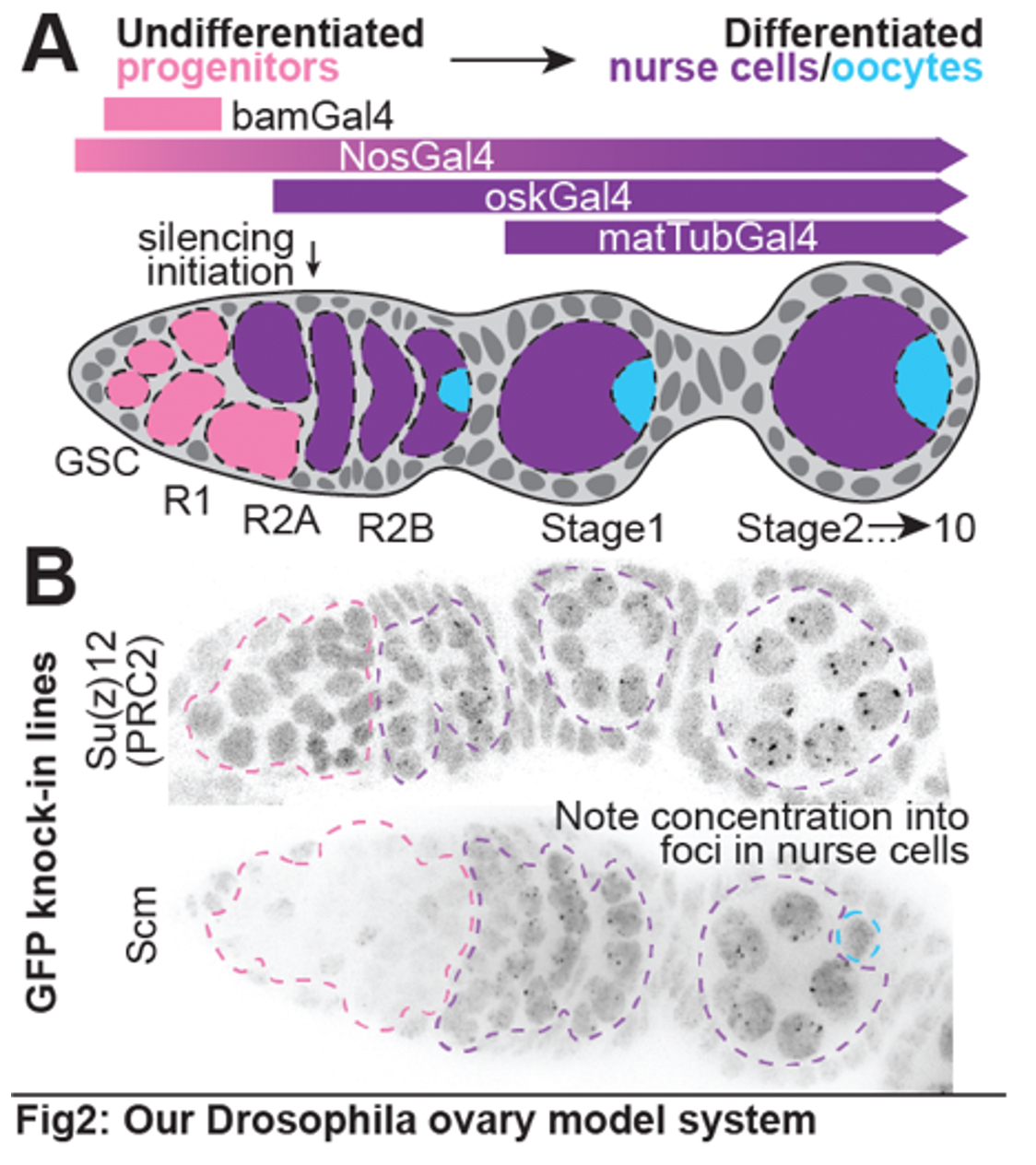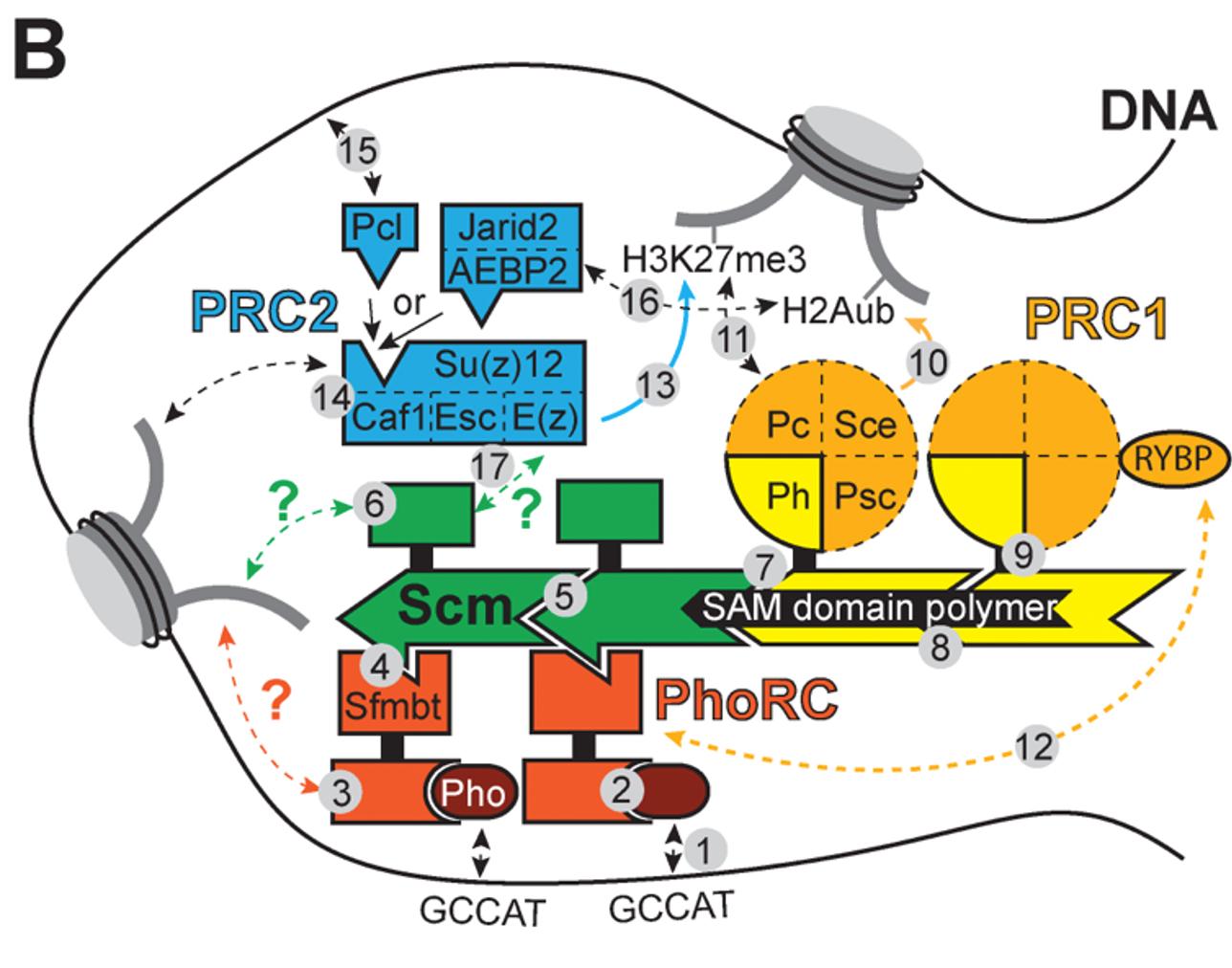Research in the DeLuca Lab

Gene expression control in germ cells
The germline is an immortal cell lineage tasked with propagating the highest quality DNA. Germ cells regulate mutation and recombination rates, suppress selfish genetic elements like transposons, and produce gametes. The germline also gives rise to multiple somatic cell lineages to help it acquire nutrients and reproduce within a highly competitive and changing environment (the world). Perhaps to juggle its myriad functions, germ cells regulate genes differently than highly specialized somatic cells. Compared to most somatic cells, germ cell gene expression is more permissive but less robust. Most germ cells lack strong transcriptional activators and repressors and germ cell chromatin is more dispersed and accessible. We study how and why germ cells adopt this unique transcriptional state using a variety of tools we developed to purify and genetically manipulate germ cells in the experimentally tractable Drosophila ovary.

Developmental regulation of gene silencing
As somatic cells differentiate, they inhibit the transcription of many genes they will no longer need for their specialized purposes. This developmentally-regulated gene silencing is triggered and maintained by Polycomb-Group proteins. Beginning with genetic screens in flies, many Polycomb-Group proteins have been identified, but how they work together to silence the correct genes at the right time and place in development is poorly understood.
